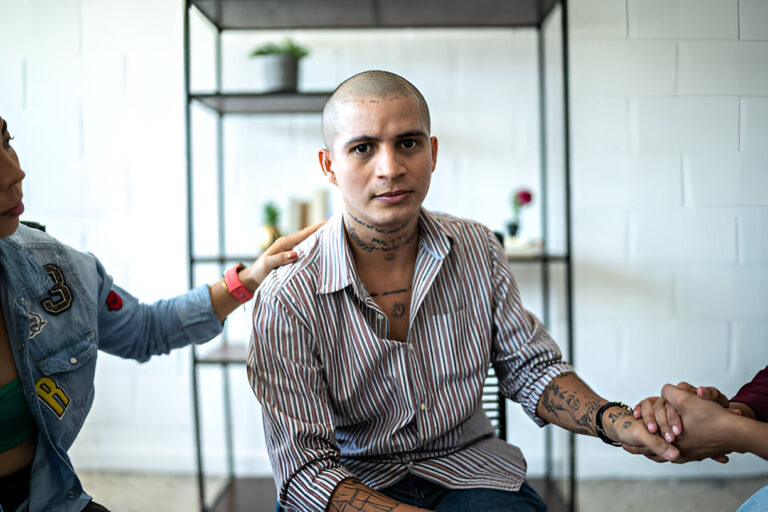Many people in the LGBTQ+ community face obstacles when seeking treatment for addiction issues that require specialized care tailored to their experiences and challenges, distinct from those of heterosexual individuals. This understanding is key to offering assistance and ensuring positive recovery results.
Acknowledging the Consequences of Discrimination
Discrimination impacts the lives of LGBTQ+ individuals. These prejudices can show up in ways such as homophobia and subtle microaggressions. These encounters typically result in increased stress and feelings of anxiety and sadness. These emotional challenges may lead to a rise in substance reliance as a way to cope with the situation, making it more challenging to address addiction issues for LGBTQ+ individuals. When looking for assistance from an LGBT rehab in Los Angeles, it’s crucial to locate programs that specifically tackle these challenges and offer a supportive setting.
The Significance of Tailored Assistance
Traditional addiction treatment programs might not fully cater to the requirements of LGBTQ+ individuals. That’s why tailored care is crucial; it takes into account the cultural and psychological influences that impact this community. Programs tailored specifically for LGBTQ+ people can create an environment where individuals feel heard and acknowledged. This acknowledgment can greatly influence their willingness to participate in treatment and their chances of achieving lasting recovery.
Managing Relationships Within the Family Unit
Support from family is important for people in recovery from addiction and can make a difference in their journey to wellness. Additionally, LGBTQ+ individuals may encounter difficulties with their families. Some relatives may struggle to accept their orientation or gender identity, resulting in strained relationships or a lack of support. Dealing with these intricate family dynamics demands empathy and insight from those providing treatment. Treatment programs that involve family counseling and encouragement can assist in addressing these challenges and promoting bonds within the family unit.
Discussing Issues Related to Well-Being
In the LGBTQ+ community, mental health issues often overlap with substance use problems. Depression, anxiety, and past traumas are concerns that should be dealt with while treating addiction. Merging health and addiction services into a care model can be highly advantageous. This method guarantees individuals get assistance to improve their well-being and enhance their recovery prospects.
Establishing a Welcoming Atmosphere
Creating a space is crucial for LGBTQIA individuals seeking addiction treatment assistance. Embracing inclusivity can promote a sense of safety and belonging among individuals undergoing recovery efforts by eliminating concerns about criticism. This involves employing communication methods and ensuring the availability of gender-specific amenities while equipping staff with knowledge on LGBTQIA matters. A friendly environment can greatly enhance the treatment journey and the overall effectiveness of the program.
Creating a Community of Support
Community assistance is crucial in aiding individuals through their journey to recovery from addiction, as it provides a network of individuals who can relate to their struggles and triumphs. For members of the LGBTQ+ community, seeking support in their recovery process can be truly life-changing. Various initiatives include counseling sessions and support groups tailored to LGBTQ+ individuals. These gatherings serve as havens for sharing stories and forging connections that foster a sense of community and empowerment, essential for sustaining long-lasting recovery.
Exploring the Concept of Intersectionality
Intersectionality is a concept that recognizes the intertwined aspects of identities, such as race and gender, and how they intersect with one another in LGBTQ+ communities when it comes to addiction treatment. Individuals who are part of more than one marginalized group may encounter increased obstacles and prejudice. By acknowledging and dealing with these intertwining identities in treatment programs, better-tailored care can be offered to individuals.
Conquering Challenges in Healthcare Advancement
Accessing treatment can be a challenge for LGBTQ+ individuals due to factors like the fear of facing discrimination, limited availability of specialized support programs, and financial limitations that often deter individuals from seeking assistance. To address these challenges and ensure access to treatment options for all individuals, regardless of gender identity and sexual orientation, it is important to raise awareness about available resources, improve the accessibility of LGBTQ-friendly programs, and advocate for policies that promote fair treatment opportunities.
Summary
Dealing with the difficulties of treating addiction in the LGBTQ+ community necessitates an all-encompassing strategy that acknowledges the effects of discrimination and offers tailored care in nurturing surroundings to enhance the well-being of LGBTQ+ individuals significantly. With support and empathy in place, the prospect of recovery becomes not just a possibility but an attainable goal for all.

